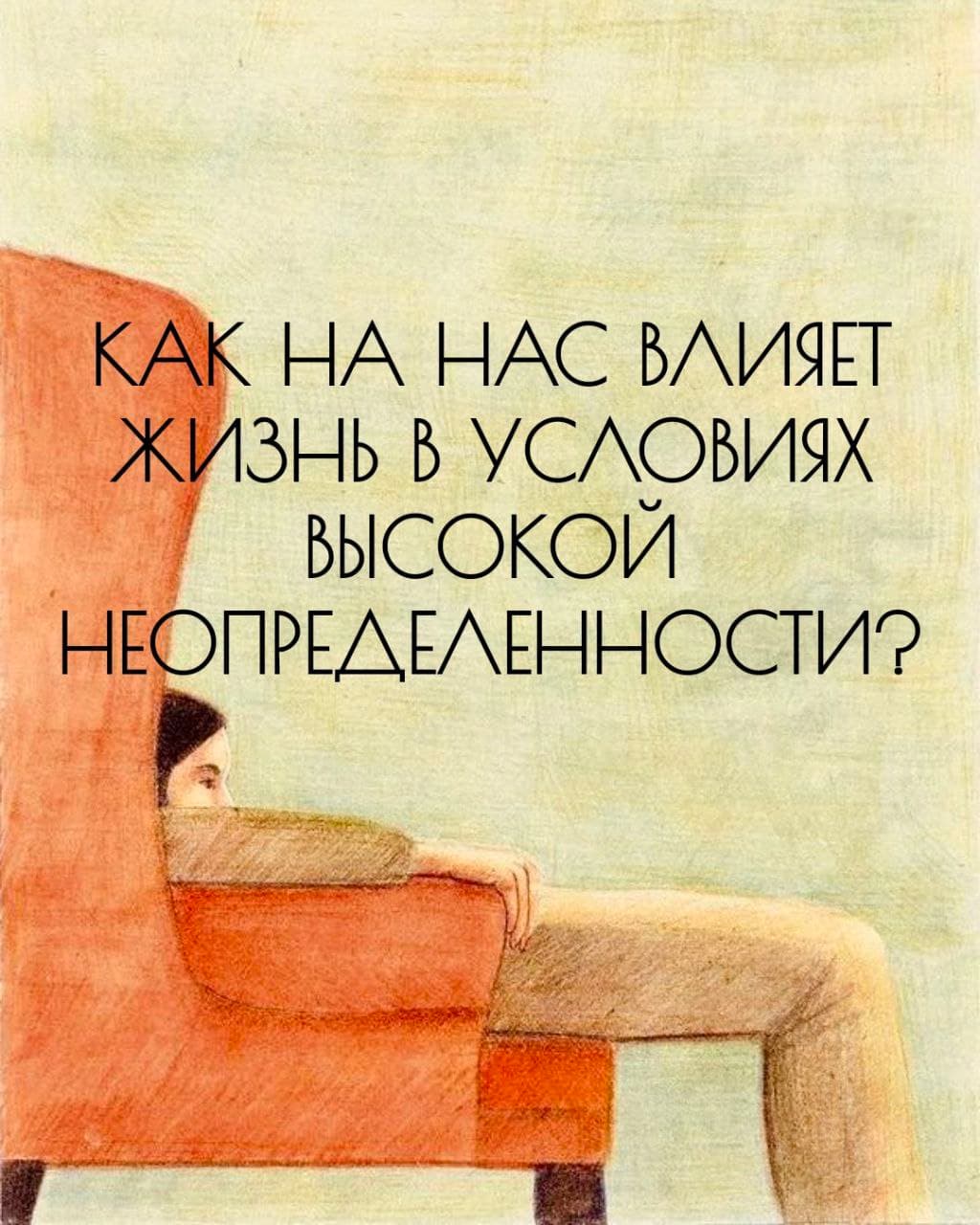
@omprograms
Uncertainty is almost inevitable and, in a way, even a familiar part of our lives. But when the level of uncertainty is high, it can affect a whole range of important aspects of our lives.
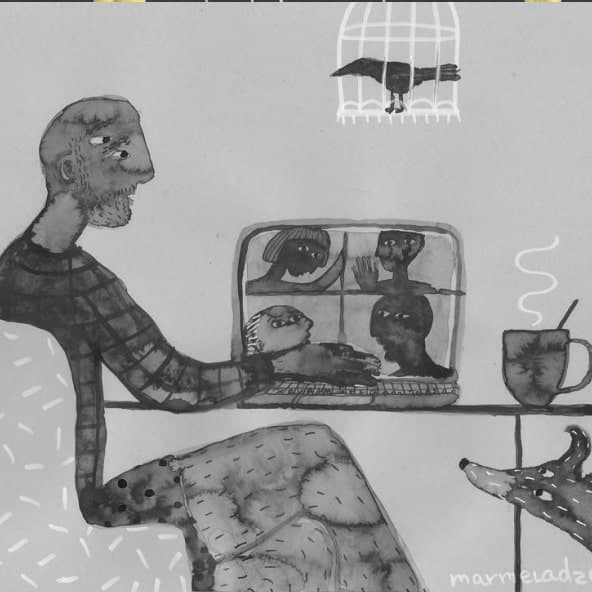
It's been over a year since the pandemic was declared, and we've been plunged into our first lockdown. At first it seemed like it wouldn't last long. Then we began to realize that it wouldn't end in two weeks, tried to adapt to the new situation and generally adapted quite well: we learned to work from home, to drink while meeting at the buzzer, to wear suit shirts with pajama pants.
Some have managed not just to significantly expand their online life skills, but also to do a lot of good and useful things: start new projects, write books, participate in wonderful volunteer campaigns, build new businesses. We almost got used to it, but we didn't. Gradually, most people began to experience what psychologists call distress (a state in which adaptive mechanisms are depleted or fail). And no wonder. Because, from a psychological point of view, a pandemic is an ersatz war.
The phenomena we have lived with for more than a year are similar to those people encounter in wartime (fear, isolation, loneliness, powerlessness, unpredictability, inability to make plans, and so on). We also talk about the future as if it were post-war time: "When the pandemic ends, we will meet", "When the pandemic ends, we will travel".

MEMORIAL TO THE VICTIMS OF COVID-19
Many were in situations where health, life, and vital well-being were threatened. Many faced loss, each to their own: deceased loved ones, shattered families, lost jobs, collapsed businesses, unrealized plans. And, of course, for most people, the pandemic experience was traumatic. Even if we did not see the situation as directly threatening us, we feared every day for more vulnerable loved ones, abandoned familiar ways of living, and faced uncertainty and limitations.
The peculiarity of the current situation is that, for all the catastrophic nature of the pandemic, the lockdown is certainly not a real war. It is shameful and even blasphemous to talk about missed performances and parties like donuts in besieged Leningrad. We are not in the trenches, but in our own apartments, and we are not starving, but, on the contrary, we exercise in cooking intricate dishes from excellent products, which are also delivered to us; in the evenings we sibaritize in a comfortable armchair with a good wine and a book or watching a wonderful movie.
"Can you imagine finding a mask in your jacket pocket that just happened to be there five years from now and thinking, 'Wow, there was a time when we only wore masks on the street and not those monstrously uncomfortable spacesuits.'"
But precisely because most people stay in relative comfort and do not see the wounded and killed, but only read about losses on social networks, the "war" experiences and fatigue we encounter are not always easy to notice and even harder to recognize. In addition, our enemy is rather ephemeral. It is difficult to direct one's aggression and anger at a virus. Therefore, they are either displaced and accumulated, or channeled either to habitual objects: the state, the media, external enemies, or inside those closed communities in which we find ourselves, i.e. mainly in our families. This is aggravated by the inaccessibility of compensatory mechanisms that support habitual ways of releasing tension and meeting our needs.
In a pandemic, as in a war, nothing can be planned for I heard that in 2020, almost simultaneously, a couple months apart, three companies with completely different areas of expertise called Uncertainty opened independently in the US, Norway and Canada almost simultaneously, in 2020. And I wasn't surprised at all. During a pandemic, familiar supports became very unreliable. It's as if you're walking down the road, and suddenly, quite unexpectedly, the ground starts to fail right under your feet. Having had the experience of plans flying into tatters several times, we lost our understanding: whether the air service between the countries will open, and if it does open, whether the flight will not be canceled at the last minute, and if not canceled, whether it will be possible to return back and on what terms. "It's unclear what they will come up with tomorrow..." I think we will be making plans with caution for some time after the restrictions are lifted.
Even the end of the lockdown, so long-awaited, is viewed with skepticism by many. Is it forever, or for a couple of months... "Can you imagine, when you find a mask in the pocket of this jacket that accidentally got there five years from now, and think: 'Wow, there were times when we used to wear masks on the street, and not these monstrously uncomfortable spacesuits,'" my son-in-law quoted a joke from the Internet. And indeed, it is still hard to believe that this is the end of the earthquake and not a pause between new tremors.
Many people have developed a new fear. A person is labeled as dangerous, breathing is labeled as dangerous, touching a person is dangerous. The removal of restrictions and the possibility to be in the same space with a large number of people can actualize this fear, which has become stable. Well, imagine: you are at a train station, where there are crowds of people without any masks, or in a small bar full of people. At first, a significant portion of people will be very cautious about inviting others into their space, limiting themselves to meetings on the street or, out of habit, to "baubles" consisting of already designated "safe" acquaintances. It will take some time to re-learn to trust each other's safety.
It looks like we will need (hopefully not for long) a new covid ethic, but it has not yet been developed. At the same time, quite a few people perceive the situation in exactly the opposite way: from their point of view, the danger of a pandemic is greatly exaggerated, restrictive measures are the result of stupidity or conspiracy, and their weakening is a reason to immediately increase public activity. A meeting between representatives of these groups is likely to cause feelings of embarrassment, shame and aggression on both sides.
This is superimposed on the already intensified polarization in society. On the one hand, the sharp confrontation of views is one of the ways to channel the accumulated aggression. On the other hand, despite the globally common experience of the pandemic, people found themselves in very different situations. It is difficult for those who have been severely ill or lost relatives to understand those who have suffered asymptomatically and are completely convinced of the idea that the whole story has been artificially inflated. In some countries there was practically no lockdown, in others it was very tough, somewhere right now the third wave is starting and everything is closing down, and somewhere, on the contrary, a relaxation of restrictive measures has already been announced. Some have tried not to change their lives and meet each other despite the bans, and can't wait to throw away the very mask that has served them faithfully for a year. Others, on the contrary, hardly ever left the house and sharply limited any offline interaction.
Covid dissidents and adherents of restrictive measures disagree with each other They annoy each other terribly and of course have different perceptions of loosening the lockdown. It's not quite clear yet how to handle these different attitudes to covid practically. If I want to invite guests, can I have a meeting indoors? Or would it be unseemly to call people into an enclosed space? Or, conversely, if I offer to have a meeting in the courtyard in cooler weather, will I be considered a crazy kovid coward? If I suggest a coworker meet at the buzzer, wouldn't that be a sign of disrespect? And if it's at a coffee shop, won't I stress him out? Is it comfortable to hug an acquaintance when meeting, or is that still not customary? And so on. It looks like we're going to need (hopefully for a while) a new covid ethic, but it hasn't been developed yet.

The increased distrust and fear of the other is coupled with another phenomenon that emerged in the pandemic: the willingness to accept state-imposed restrictions. Before the pandemic, it was unimaginable that it would be impossible to travel freely, to go to visit sick parents or to deliver a daughter; it was hard to imagine that one could enter public places only in masked uniforms, and that one would have to pay for one's sovereign right to return home (from buying tests to paying for quarantine hotels). Such restrictions on freedom and demands for obedience were strongly associated with a totalitarian state.
We have now lived through a situation in which restrictive regulations (sometimes obviously stupid ones, like the requirement of some airlines to wear gloves during the entire flight) were declared a means of saving lives, and refusal to do so was considered a threat to life. Now our rights to freedom are in conflict not with the state, but with the society to which they pose a threat. The core value of Western society, the presumption of individuality, is no longer inviolable. Fear of the spread of disease has allowed collective interests to overshadow personal interests.
The danger of infection also brings a new form of segregation Those who are loyal, willing to follow the rules, and vaccinated will have more opportunities to travel and attend events. And those who are not ready or unable to follow the rules will have more restrictions. The combination of mistrust and fear significantly affects relations not only with people within our society, but also with the state and creates the danger of them shifting towards more totalitarian ones. Social polarization is aggravated against the background of post-traumatic desensitization (decreased sensitivity and ability to understand one's experiences as an attempt not to face unpleasant experiences). And the more effort and energy is spent on suppressing the feelings associated with the pandemic experience, the less will be left for making people's relations with the state and with each other healthier.
We need time to come to our senses, to feel trust in life and in each other. Desensitization prevents us from not only facing losses, but also from recognizing victories. And there have been many of them over the past period. Most of us have done very well on our own and even supported others, some of us have learned a new profession online, some of us have learned new ways of working in an old one, many couples have gone through a crisis, some of us have survived a serious illness. Despite the fact that victories are easier to recognize than losses, the attempt to avoid experiencing losses also blocks the ability to rejoice in gains.
Assimilating past experience is possible if it is already behind us Assuming that this is indeed the end of the pandemic, the first time after the restrictions are lifted is the best time to do so. We will be faced with choices that will determine our ability to understand and complete the experiences we encountered in the pandemic.
If people for some reason do not face their difficult feelings, are not willing to share them with others, do not want to burden anyone, and isolate themselves, this can contribute to increased desensitization and the growth of depressive disorders. Suggesting not to be burdened, to ignore, to let bygones be bygones causes the person to further lose access to their feelings and blocks the recovery process. A helpful strategy is to experience things together: inventing rituals or games (maybe our children will play pandemic the way our parents played war), putting on plays, discussing, publishing and reading articles on the topic, being able to get upset, grieve, cry, asking for help (e.g., seeing therapists), and recognizing accomplishments. The last one is also very important. We must not forget that we have been able to live and work in unfamiliar conditions and under very unclear rules. We need time to come to our senses, to trust life and each other.
The coming long-awaited life without lockdown is new again, not like it was before the pandemic. And while we'll need to adapt again, I have high hopes that the adaptation skills we learned in the pandemic, along with the ability to embrace each other and see each other in person rather than through a rectangle of screen, will make this process much easier. And then we will surely be able to free ourselves from the frozenness (which both shackles and preserves us from the bitterness of loss and the recognition of victory), and freedom and newness will once again enter our lives.

Fill out the form below, we will answer your question shortly!

Uncertainty is almost inevitable and, in a way, even a familiar part of our lives. But when the level of uncertainty is high, it can affect a whole range of important aspects of our lives.
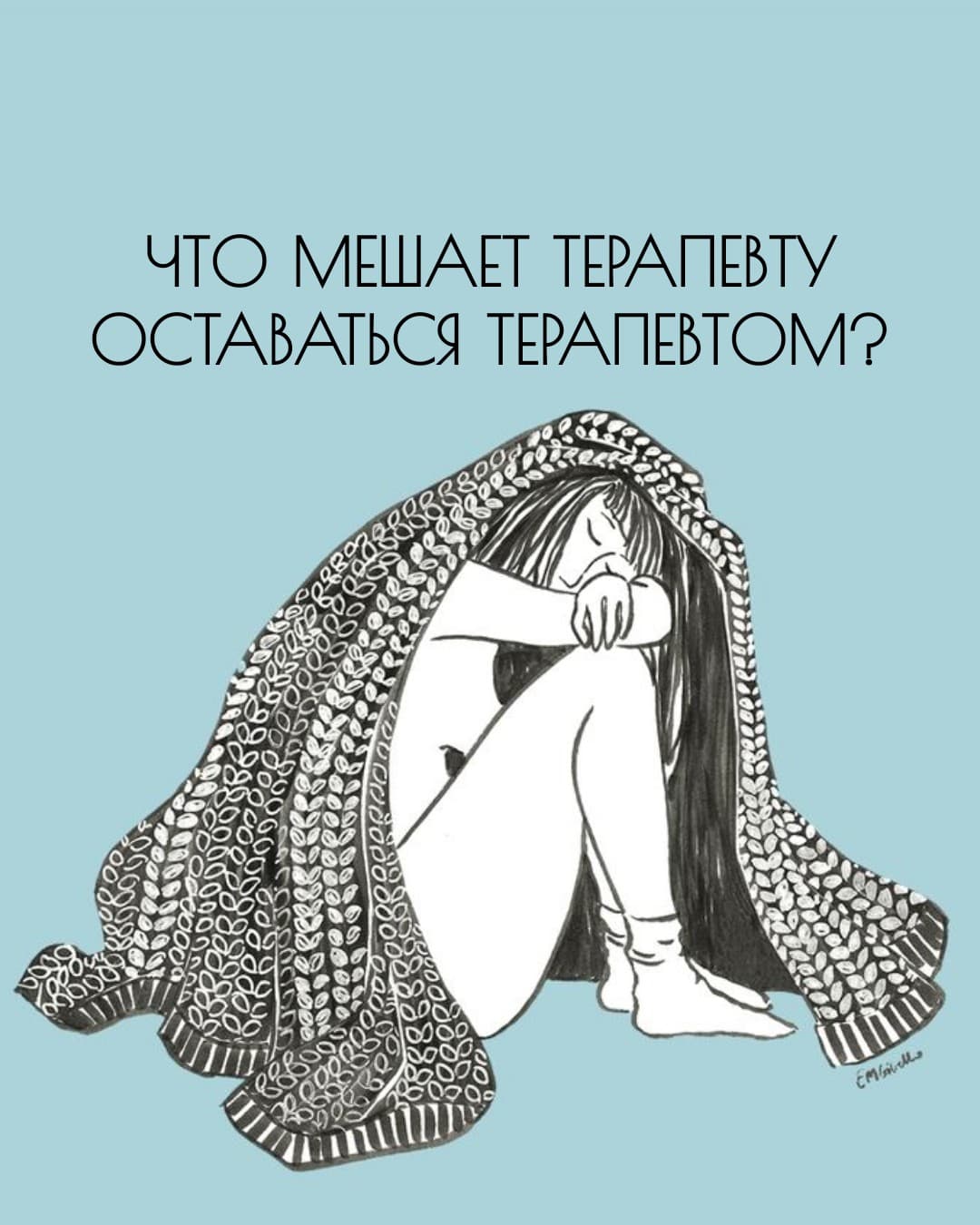
WHAT PREVENTS A THERAPIST FROM BEING A THERAPIST?
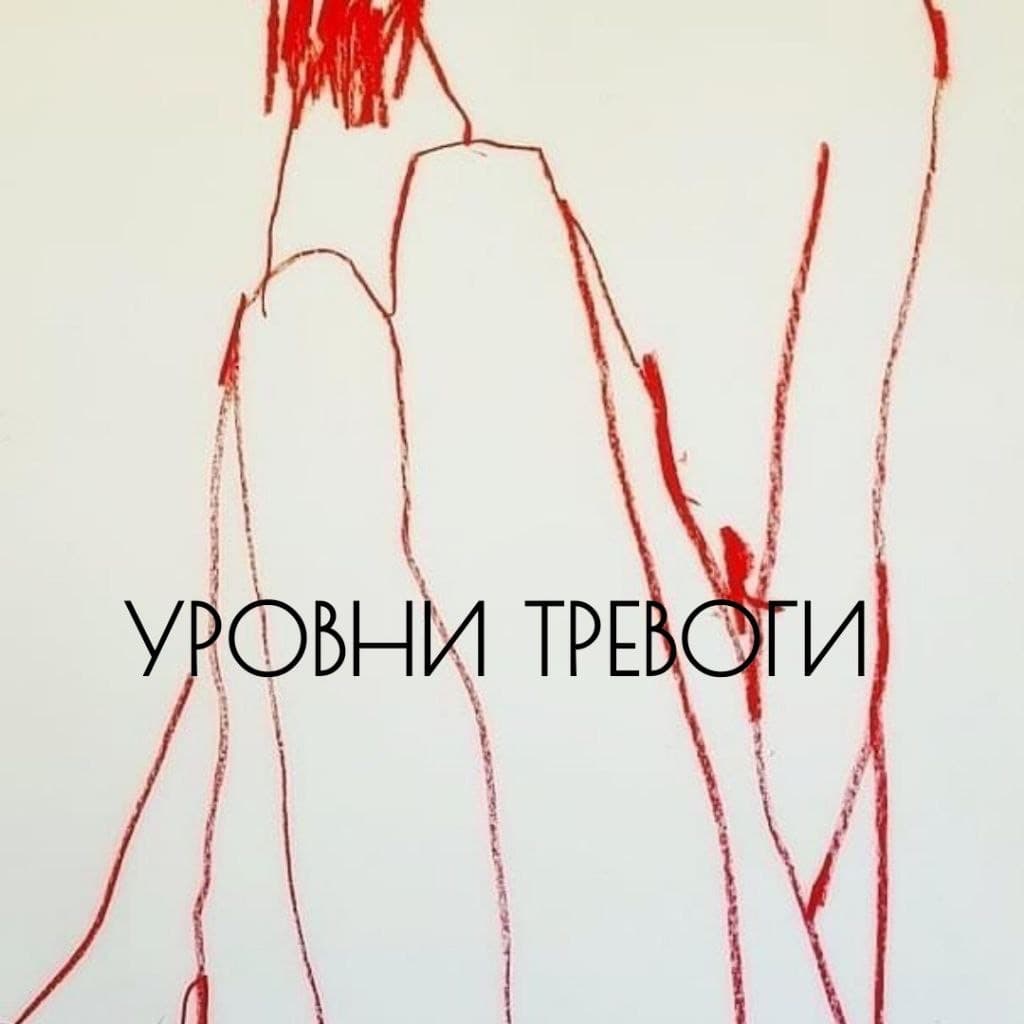
Alarm levels. What is anxiety and how to deal with anxiety?
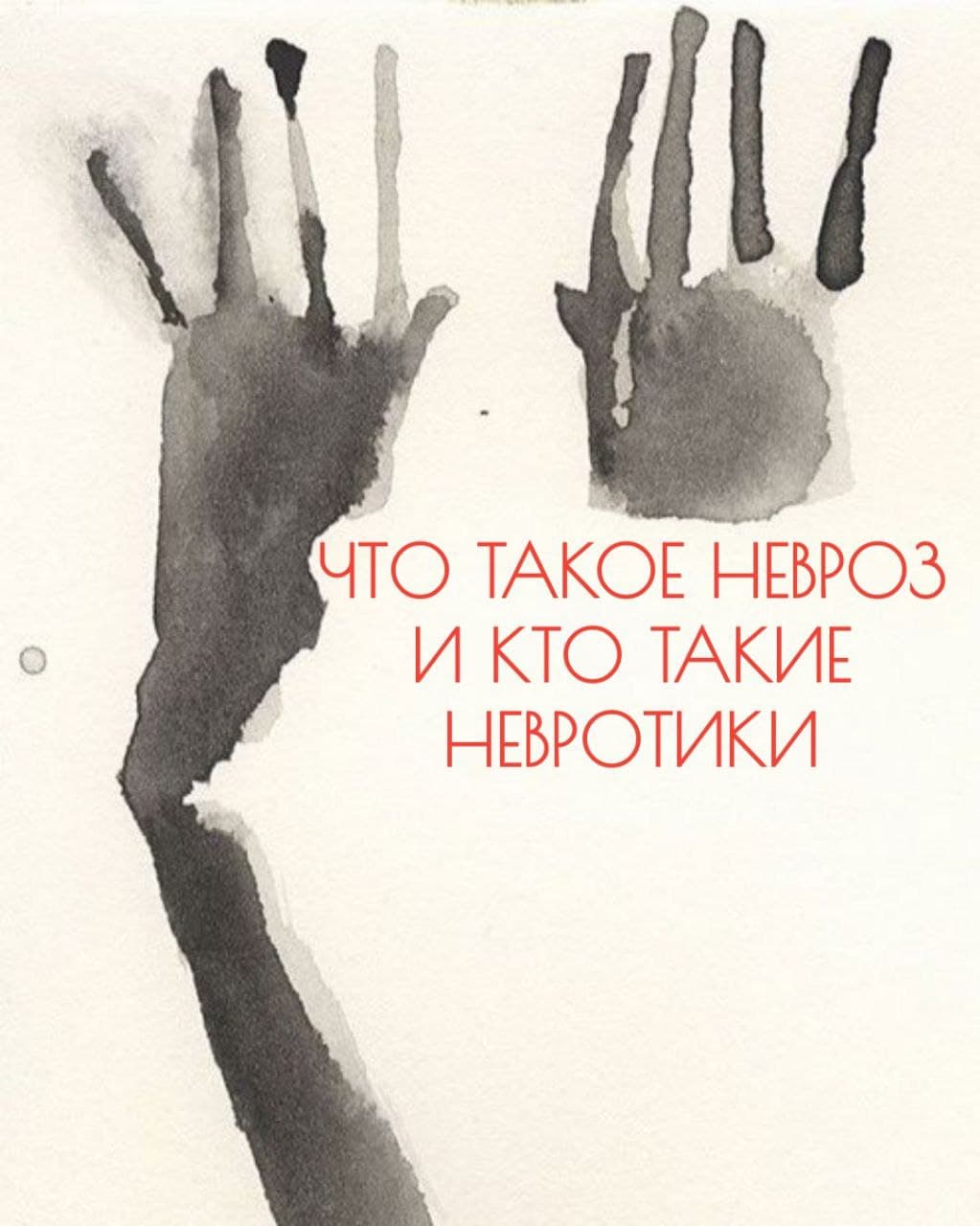
What is neurosis, and who are neurotics?